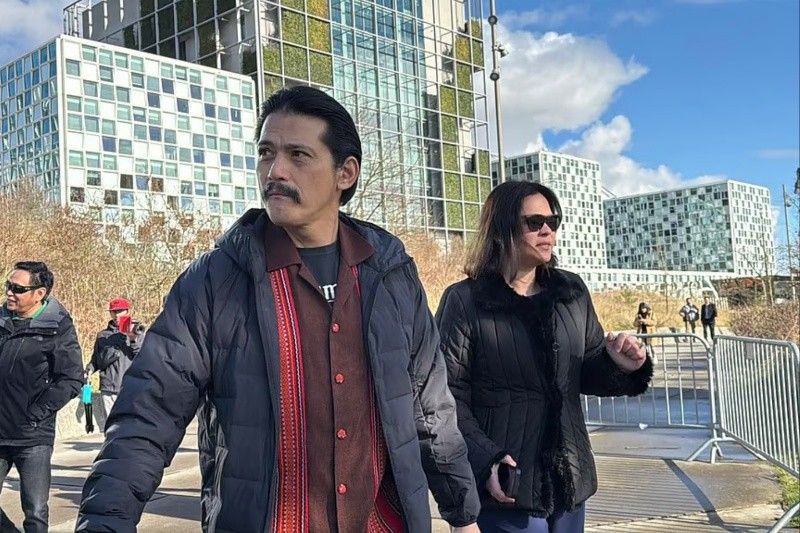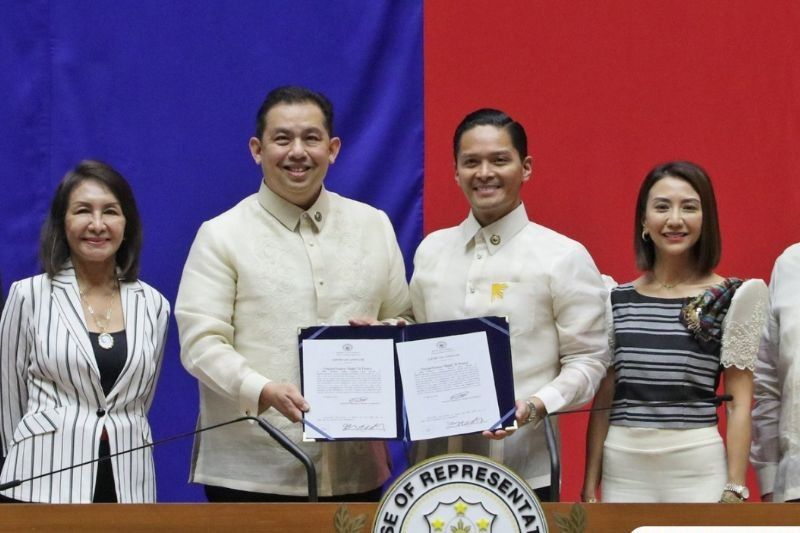
Upgrade to High-Speed Internet for only ₱1499/month!
Enjoy up to 100 Mbps fiber broadband, perfect for browsing, streaming, and gaming.
Visit Suniway.ph to learn
House Tri-Committee holds its fourth hearing on disinformation on Tuesday, April 8, 2025.
House of Representatives / Released
MANILA, Philippines — Meta, the social media giant, expressed its openness to participate in discussions aimed at crafting measures or establishing a regulatory body for social media platforms in the Philippines.
As part of Congress’ attempt to address the spread of disinformation online, the House Tri-Committee held its fourth hearing on Tuesday, April 8, where Meta representatives finally appeared after several invitations.
Following an explanation of Meta's approach to tackling misinformation, Rafael Frankel, Meta’s director of public policy in Southeast Asia, was asked whether Meta would back the creation of a regulatory body for social media platforms.
“Would Meta support a Philippine regulatory committee for social media platforms so that they can partner and help out the same regulatory committee if it was formed?” Rep. Paolo Ortega V (La Union, 1st District) asked.
While Frankel did not explicitly commit to supporting or joining the regulatory committee, he said he would be “more than happy” for Meta to collaborate with the Philippine government on any disinformation-related regulations.
“I’d be more than happy for Meta as a company to engage with the Philippine government and Congress on any type of regulations that you are considering when it comes to these issues,” he said.
Across the region. The public policy director also said Meta, for several years now, has been collaborating with other countries in Southeast Asia and the Asia Pacific to develop regulations that ensure information integrity, protect users and safeguard freedom of expression.
“It’s really important that countries have their own solutions and we are happy to share what we feel like works, what has been more challenging and what doesn’t work,” Frankel said.
“We’ll be very happy to engage Congress on that issue and we appreciate the opportunity and thank you for it,” he added.
Accountability. When Rep. Romeo Acop (Antipolo, 2nd District) asked whether Meta should bear some responsibility for shared content on its platforms, Frankel refrained from giving a direct answer.
He said the individual posting or spreading misinformation is typically held accountable, while Meta works to balance free speech with protecting the integrity of information online.
Meta operates the social media platforms Facebook, Instagram and Threads. Frankel explained that its approach to misinformation on these platforms heavily relies on its third-party fact-checkers in verifying claims online.
The fact-checkers he mentioned include VERA Files, Rappler and Agence France-Presse, which are certified by the International Fact-Checking Network (IFCN) as independent and non-partisan organizations.
However, in January, Meta announced plans to phase out its fact-checking program, replacing it with community notes, a move already implemented in the United States.
RELATED: Meta boasts ties with Philippine fact-checkers at disinfo hearing despite eventual phaseout
Community notes, used by X (formerly Twitter), relies on crowd-sourced information to flag content online. Any user who signs up as a contributor can add context or rate claims in X posts. However, it doesn't follow traditional journalistic standards or a formal peer-review process.
In March, Meta said it has intentions to roll out this new approach globally, clarifying that the third-party fact-checking program will remain in place for other countries until community notes are launched.
Next steps. The House Tri-Comm has yet to file proposed legislation related to its inquiry into disinformation in the country. However, in the past four hearings, suggestions have been made, including the creation of a digital council to regulate social media platforms and the establishment of ethical guidelines for content creators.

 2 months ago
19
2 months ago
19



